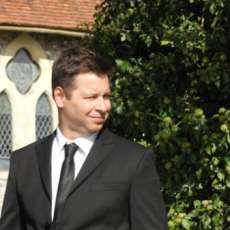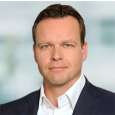DNV GL is a global quality assurance and risk management company with German and Norwegian roots. The energy branch focuses on world-renowned testing and advisory services to the energy value chain including renewables and energy management and has a strong footprint in Poland, particularly in the renewables segment.
You have an impressive global footprint in over 100 countries – zooming in on Poland what are DNV GL’s core capabilities and focus areas?
DNV GL’s culture is one of close cooperation among international offices – this way we can harness the joint knowledge of our engineers and experts to ensure every project we work on is successful. For example, if we are working on turbine lifetime extension we would frequently collaborate with our colleagues in Germany or the United States.

In Poland the two industries driving demand have been onshore wind and solar, with offshore wind gaining traction since 2016.
Moreover, we have been advising on multi-technology projects, including energy storage, which works as a complementary feature to RES. Overall we are involved one way or another in 90% of all green energy projects in Poland and focus on what we are good at – technical advisory services.
Poland’s December 2.5 GW auction is the biggest Europe has seen in 2019 – are you expecting a significant rise in demand in 2020?
We are already involved in the development of Potegowo wind farm, one of Europe’s largest projects. We have been advising them since 2014, starting with the measurement campaign, layout optimization, and during the financing process. We executed the full scope of due diligence including energy production assessment, site condition assessment, all of it in view of how to improve the project. At present we are still advising the lenders about construction monitoring and certifications, which helps bring the banks peace of mind.

Looking at the industry overall there are many exciting projects in the pipeline for 2020. But market expansion comes with its own set of risks and Poland needs to be prepared for what the new year will bring. Even seemingly mundane issues, such as having high enough voltage cables available on short notice, can become an important challenge.
Another example is the shortage of cranes throughout Europe, as increasingly higher wind turbines bring up new demands. Each piece of the puzzle contributes to a successful project delivered on time.
You mentioned energy storage earlier, but is it not a technology that is still very much in its infancy?
Considering the government’s agenda and industry trends we are observing, we expect electro-mobility and storage to boom in Poland. Having the ability to store energy will allow energy producers to sell when energy prices are higher, and help optimize their financial models.
Based on our experience in other markets, storage in Poland can go from zero to 100% in as little as a year. The exponential pace technology is progressing is also a factor – for example the cost of storing 1 MWh in 2010 was 400% higher than the predicted cost in 2020. Likewise, there are companies in Poland that are pioneers, such as Energa who included storage in their five year plan.
Two corporate power purchase agreements (PPAs) were successfully signed in Poland – do you think they are viable alternatives to the auction system?
PPAs are seen by the industry as a backup plan to auctions and a great complement to bring added security for producers. DNV GL’s digital and innovation department created a tool to assist them in the process called Instatrust, which connects project owners with companies seeking to buy green energy, and we would like to bring this instrument on the Polish market.
Sounds like several reasons to feel optimistic about the future – how equipped is DNV GL to take on these new trends and demands from the industry and what are you prioritizing?
We are a veteran in the green industry space and we are here to stay – our core expertise is in wind and solar as well as grids, but we remain open to new energy sources and technologies.

We are also embracing digitalization to more accurately forecast the amount of energy produced and sold. Likewise we encourage multi-technology projects and believe that combining wind, solar and storage in the same project, and installing smart grids minimizes risks and maximizes productivity.
From a regional perspective we often run workshops and take our role as market educators seriously, with an honest desire to help the community better gauge risks and ensure their projects run smoothly. For examples in Ukraine and Russia we held Lessons Learned type workshops based on experiences from Germany, UK, or Poland. Green projects do not only benefit producers and their respective value chain, but society at large and future generations. Ensuring that projects run well is a clear priority, raising the reputation of the industry and its chance to thrive – by imparting our knowledge we want to play in active role in this shared mission.





